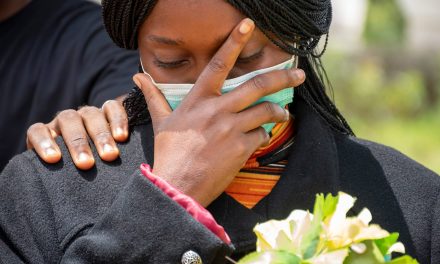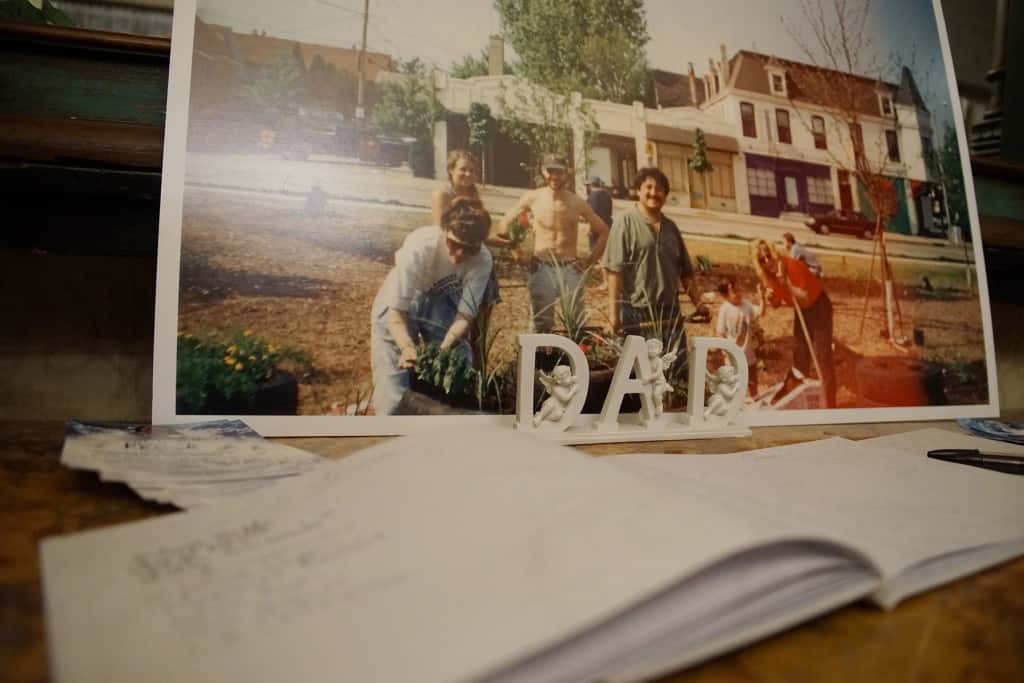
The victims of Alex Jones’ lies about the Sandy Hook slaughter of their children were just awarded about a billion dollars by a jury of his peers. Jones made tens perhaps hundreds of millions peddling lies leading to years of stalking, harassment, and emotional torture of the families of the children who died.
Which raises a vital question: When will the victims of oil companies’ lies — which have led to far more deaths than happened that terrible day in Connecticut — get their day in court?
There is an amazing backstory here.
During the week of Christmas, 1953 a group of tobacco executives met discreetly with John Hill of Hill & Knowlton, then the largest, most powerful, and most prestigious PR firm in the world, at the Plaza Hotel in Manhattan.
News that tobacco caused cancer had leaked into the mainstream press with recent stories in TIME magazine, Readers’ Digest, and Life magazine telling the stories of scientists who had reached that conclusion and the tragedies of Americans dying of lung cancer.
John Hill, according to still-extant notes from the meeting, advised the tobacco bigwigs to create an authoritative-sounding group of scientists — he suggested it be called the “Tobacco Industry Research Committee” but they later simply named it “Project Whitecoat” — staffed by well-paid scientists willing to tell the public there was nothing to worry about.
For the next four decades the tobacco industry manipulated the press; published phony science; fielded scientists, doctors, and PR flacks; placed articles in mass-circulation magazines and newspapers; went on TV and radio; and paid writers, producers, and actors to smoke in movies and on television.
“Doubt is our product,” read a later memo from the Brown & Williamson Tobacco Company, “since it is the best means of competing with the ‘body of fact’ that exists in the minds of the general public.”
The tobacco industry only stopped peddling lies about their product in the United States after losing a $206 billion lawsuit in 1998.
The fossil fuel industry set up their own version of Project Whitecoat after Exxon scientist Marty Hoffert ran a pretty irrefutable computer model in 1981 showing that disastrous climate change would happen if the world continued to consume fossil fuels at the rate it was then.
Instead of changing their ways, his employer and others in the industry threw millions into funding phony science outfits and sellout scientists willing to promote doubt as their product.
As Hoffert told the BBC two years ago:
“What they did was immoral. They spread doubt about the dangers of climate change when their own researchers were confirming how serious a threat it was.”
Now the bill is coming due. So far governments have been the ones bearing the burden: two months ago Denmark announced that they’d allocated $13 million to help poor countries hurt by climate change caused by fossil fuels burned in that nation.
A year earlier, Scotland’s First Minister, Nicola Sturgeon, committed about $1.3 million to the United Nation’s Climate Justice Resilience Fund to help poor countries recover from climate change caused disasters.
Both allocations are a mere drop in the bucket — sort of like the early tobacco settlements in the 1980s and early 1990s — although they represent a trend that cannot be ignored.
Meanwhile, like the tobacco companies in the 1950s through the 1970s, the fossil fuel companies who funded decades of lies and misinformation have been largely untouched by requests or demands for reparations for the damages their products have caused.
The governments of Denmark, Scotland, and even the United States were not, by and large, the source of the coverups of knowledge about the coming impacts of climate change.
That distinction lies with the fossil fuel behemoths themselves, some of whom continue to fund such disinformation campaigns and climate-denying politicians to this day.
At last month’s meeting of the UN, Secretary General António Guterres pointed out the oil industry’s massive profits and spoke passionately about the importance of nations taxing their fossil fuel companies to raise money that could help people harmed by climate change.
“The combined profits of the largest energy companies in the first quarter of this year are close to $100 billion. This grotesque greed of the fossil fuel industry and their financiers is punishing the poorest and most vulnerable people, while destroying our only home.” – António Guterres
The poor countries of the world — who have contributed only a tiny fraction of the world’s carbon pollution that is driving climate change — are bearing the brunt of its impacts if only because they are less resilient and less able to pay to recover and rebuild.
The people of Florida who were wiped out by Hurricane Ian, the people of California who have lost their homes to wildfires, the people of the Midwest whose homes were destroyed by flooding and derechos are also victims of these immoral companies, although they are largely being backstopped by insurance companies and FEMA.
But, as Americans with access to wealth and our court system, it is just a matter of time before they begin suing the fossil fuel industry.
Fossil fuel industry profits since the 1970s, when word was first circulating in scientific circles that climate change was happening and could be bad, have totaled as much as $50 trillion, an average of $3 billion a day for around 50 years.
Last year the oil industry alone saw over $200 billion in reported and distributed profits and the last few quarters have been the industry’s most profitable ever, with first quarter profits hitting over $100 billion.
The Saudis betrayed America and went along with Putin to cut production, increasing the price of oil and the price of gasoline at the pump, as we are seeing with the inflation numbers released this morning. This will add to the fossil fuel industry’s profit income in coming quarters.
The industry is using part of these obscene profits not to remediate the harms they have created but, instead, to lobby governments around the world to dial back plans to de-carbonize their economies.
Next month at the COP27 meeting in Egypt there will be more calls for rich nations to pitch in to help poor nations devastated by climate change. But that should be just the beginning.
It is past time for the fossil fuel industry to face the same type of courtroom reckoning the tobacco industry did in the late 1990s and Alex Jones faced on October 12.
SynthЕx
© Thom Hartmann, used with permission. Originally published on The Hartmann Report as When Will the Victims of Oil Companies’ Lies Get Their Day In Court?
Subscribe to The Hartmann Report directly and read the latest views about U.S politics and other fascinating subjects seven days a week.














